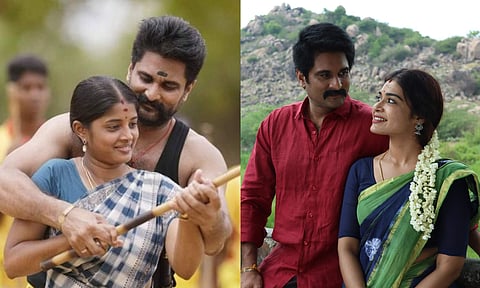

In his paper, ‘Castes in India: Their Mechanism, Genesis and Development’, BR Ambedkar says that subjugation of women is inherent in the process of caste formation. “Man—as a maker of injunctions—is most often above them all,” says Ambedkar, as he formulates the genesis of caste. Endogamy is the essence of the caste system, and so, women who marry and reproduce become important for the caste system to flourish. Intercaste marriages are ‘allowed’ as ‘natural order’, when a man from a higher caste marries a woman from a lower caste (described in Manusmriti as anuloma).
However, an upper-caste woman marrying a man from the lower castes (called pratiloma) is banned. It’s thought ‘unnatural’ and worthy of ‘punishment’. That’s why we see devastating crimes occur around such developments. Furthermore, women are to be ‘taken by her father, then her husband, and later her son’. Woman, as an unwitting instrument in caste politics, is controlled, often by the violent suppression of sexual liberties. In speaking of caste, we must notice intersectionality and acknowledge the deep gender factor.
The last two Mohan G films — Draupathi and Rudra Thandavam — sneakily espouse regressive ideas, including reducing women to sacrificial lambs who are waiting to be trapped. They are shown as needing protection from men in the family (or the good woman, in the case of Draupathi) because they cannot make decisions for themselves. One of the first things Prabhakaran says in Draupathi when he sees couples signing up for register marriage is, “Indha ponnungaluku engerunthu ivlo dhairiyam varudhu?” When asked, "Unga appa seththaa paravaa illiya?", women in this film respond, “Avaru vayasanavaru, vaazhndhu mudichavaru.” The film believes that women are that tactless.
In Rudra Thandavam, women are only spoken in connection with sex. They are either victims of harassment or used to investigate sexual violence. Or they are mothers, which becomes their only claim to an identity. Mohan G’s films do not wish to see the woman beyond her body. Pregnant women are a common motif in Mohan G’s films — Draupathi is pregnant, Varahi (Rudran’s wife in Rudra Thandavam) is pregnant, even the wife of Rudran’s driver is pregnant. You might say that Rudra Thandavam’s main plot has nothing to do with women, but Mohan G’s earlier film Draupathi also exhibits similar traits. That film pushes Draupathi into a coma, making her a human incubator for her unborn child—the ‘ultimate’ sacrifice.
It is also necessary to talk about the good women in Mohan G’s films. While most of them don’t have much agency, Draupathi is an exception. She is fierce and bold, but that doesn’t change that she is patriarchal and casteist. When a woman who is being blackmailed comes to her saying she will kill herself, Draupathi says, “Endha vamsathula poranthutu, enna pesara?” She is convinced that women are not intelligent enough to take care of themselves: “Ivanunga, ponnungala vechu endha kaariyathayum sadhichipanga.” The good woman may be educated and employed, but crucially, she must abide by patriarchal, casteist rules of society. In addition, we get free advice like, “Ponnunga ennikku sanitary napkins use panna aarambichangalo, annikke corporates mudivu panna arambichitanga namma eppo kozhandha pethukanum nu.” Slow claps.
Alarmingly, the potshots taken by both films are all indirect. It does so by creating a universe in which the law and system created to protect the vulnerable, are shown only in a negative light. Rudra Thandavam won’t directly condemn women drinking at pubs, but it will show an inebriated woman picking up a fight with good policemen. It shows women who cannot decide for themselves — you see, when they do, they get themselves in ‘trouble’. It conveniently whitewashes the choices forced on women by their families. Exceptions are deviously presented as the rule. And it does all of this under the ruse of protecting women and fighting for justice.
In responding to pieces like these, some say, “Padatha padamaa paarunga.” But as a society, do we consume films only as mere entertainment? They have the potency to influence our behaviour. It can be positive — like that report of a girl who opened up about her harassment after watching Ponmagal Vandhaal. Or it could be negative, like that video of a young man threatening murder, should his sister choose a partner from a different caste. It’s the critical discourse around films, like those made by Mohan G, that ensure social sanity.